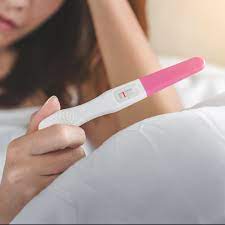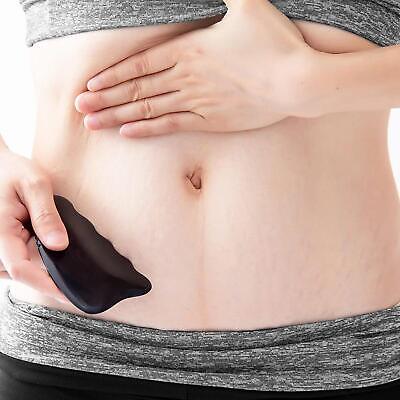From April 20 to April 26, we observed National Infertility Awareness Week (NIAW), a week dedicated to raising awareness, providing support, and advocating for improved access to fertility care. The 2025 theme, #ALLinFertility, emphasizes the shared struggles and the strength of those facing infertility. This week is not only an opportunity to highlight the challenges of infertility, but also to focus on the importance of self-care and having a strong support system during this difficult journey.
The Reality of Infertility: 1 in 6 Couples Struggling in Silence
Infertility affects 1 in 6 couples worldwide, a statistic that often remains hidden behind closed doors. Many people suffering from infertility do so in silence, grappling with the physical, emotional, and financial burden alone. The emotional toll of infertility is profound, not just for those directly affected but also for their families and friends who are often unsure of how to offer support.
The emotional journey of infertility can bring feelings of isolation, frustration, grief, and a sense of loss. Couples may feel an overwhelming pressure, facing societal expectations and unspoken stigmas. For family members and friends, watching a loved one endure the challenges of infertility without knowing how to help can be heart-wrenching as well. The support and understanding of those closest to them can make all the difference in coping with these emotional challenges.
The Importance of Self-Care During Infertility
Infertility can feel overwhelming—physically, emotionally, and mentally. Treatments like IVF, hormone injections, and frequent doctor visits can take a toll on the body and the mind. Self-care isn’t just about bubble baths and pampering (though those are nice too); it’s about creating space for yourself to heal, cope, and thrive despite the challenges.
Here are some essential self-care tips to support your emotional and physical well-being during infertility:
1. Listen to Your Body
Fertility treatments can be physically demanding. If you’re feeling drained, give yourself permission to rest. Whether it’s taking a nap, practicing yoga, or simply enjoying quiet moments, listen to what your body needs.
2. Practice Mindfulness and Relaxation
Stress can be a major barrier to fertility. Incorporating mindfulness, meditation, or breathing exercises into your routine can help reduce anxiety, promote mental clarity, and support your emotional health. Even just five minutes a day can make a difference.
3. Nourish Yourself with Whole Foods
Nutrition plays an important role in overall health, including reproductive health. Focus on nutrient-dense, whole foods that fuel your body with the vitamins and minerals it needs. Consider working with a nutritionist who specializes in fertility to tailor your diet to your needs.
4. Celebrate Small Wins
Infertility is a long and sometimes uncertain journey. Celebrate the small victories along the way—whether it’s making it through a tough week of treatments or simply taking a moment to acknowledge your strength. Recognizing your resilience is vital in maintaining a positive mindset.
The Power of Having a Support System
One of the most significant aspects of navigating infertility is having a reliable and compassionate support system. The emotional rollercoaster of infertility can feel isolating, but you don’t have to go through it alone.
Here’s why having a support system is essential:
1. Emotional Support
Having friends, family, or support groups to talk to can help alleviate the emotional weight of infertility. Expressing your feelings and being heard by others who understand can provide comfort and reduce feelings of isolation.
2. Practical Help
Sometimes the practical side of fertility treatments—appointments, travel, and logistics—can become overwhelming. Don’t hesitate to lean on loved ones to help with errands, childcare, or even just providing a distraction when you need it.
3. Connecting with Others Who Understand
Joining a support group for those experiencing infertility can create a space to share stories and advice. Connecting with others who are going through similar experiences can offer validation and comfort. Many organizations, such as RESOLVE: The National Infertility Association, offer online and in-person support groups.
4. Encouraging Advocacy
A strong support system can also help you amplify your voice in advocating for change. Whether it’s contacting lawmakers about improving fertility coverage or sharing your story on social media, support from others can fuel your efforts to advocate for better access to fertility care.
Acupressure for Self-Care and Mental Health
Acupressure, a gentle, natural therapy based on traditional Chinese medicine, can be a powerful tool for relieving stress, anxiety, and promoting overall well-being. Here are some key acupressure points to use at home for self-care during infertility:
1. Shen Men (HT7) – The Heart Gate
This point is excellent for calming the mind and reducing anxiety, which is especially beneficial during the emotional rollercoaster of infertility.
- Location: On the inside of the wrist, in the crease where the hand meets the arm.
- How to Use: Press gently with your thumb or fingers for 1-2 minutes while breathing deeply and focusing on calming thoughts.
2. Third Eye Point (Yintang)
This point helps relieve tension, reduce stress, and promote a sense of peace and calm.
- Location: Between the eyebrows, just above the bridge of the nose.
- How to Use: Use your index finger and middle finger to apply gentle pressure for 2-3 minutes.
3. Spleen 6 (SP6)
This point helps balance hormones, improve circulation to the reproductive organs, and reduce anxiety.
- Location: On the inside of the lower leg, about 4 finger-widths above the ankle bone.
- How to Use: Apply steady pressure for 1-2 minutes on each side.
4. Pericardium 6 (PC6) – Inner Gate
This acupressure point helps with nausea, anxiety, and emotional stress, often experienced by those undergoing fertility treatments.
- Location: On the inside of the forearm, about 2 inches above the wrist crease.
- How to Use: Apply gentle pressure with your thumb for 1-2 minutes on each side.
Final Thoughts: You Are Not Alone
Infertility is a challenging road to walk, but it’s important to remember that you don’t have to walk it alone. By practicing self-care, using acupressure, and leaning on your support system, you can navigate this journey with strength, hope, and resilience. As we observe NIAW 2025, let’s come together to raise awareness, offer support, and advocate for better access to fertility care.
To all those facing infertility
—remember, you are #ALLinFertility, and your journey matters.
#NationalInfertilityAwarenessWeek #NIAW2025 #ALLinFertility #SelfCare #SupportSystem #Acupressure #InfertilityJourney #FertilityAwareness #InfertilitySupport #AdvocateForChange












